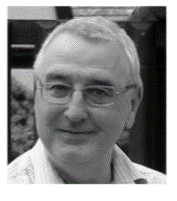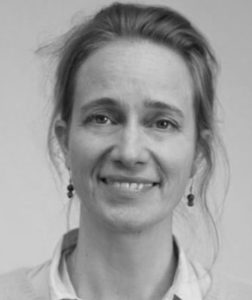DEADLINE FOR SUBMISSION OF PRESENTATIONS: 01 May 2021
The urban dimension of Cohesion Policy (CP) has evolved from the 1980s to the present in close relation with the increasing policy awareness on the relevance of cities to advance towards to a more balanced, competitive and sustainable EU territory. In 2013-14, the DG-Regio was even renamed as Directorate-General for Regional and Urban Policy, confirming the growing importance of the urban dimension in the frame of CP. Over the course of the last four programming periods of the Cohesion Policy, urban issues gained importance in terms of budget, policy relevance, and visibility. The design of the new financial and policy framework for the 2021-2027 period seems to be advancing further in this direction, with urban tools and interventions becoming more and more prominent. Nonetheless, criticism arises on how the urban issue is being addressed within the overall EU policy scene and concerning domestic determinant factors. Considering the EU complex urban policy background and the construction of the Urban Agenda for the EU, as well as the EU commitment to the UN New Urban Agenda and its Sustainable Development Goals (SDG), the urban dimension of the EU Cohesion Policy is becoming central, even more within the new European Green Deal and the post-COVID-19 perspectives. While growing in importance, the urban dimension of EU Cohesion Policy remains ill-defined and under-researched, especially with regard to some of its relevant dimensions such as its intersection with regional policy.
The objective of this workshop is to provide a space for academic and policy debate on the evolution and future of this important dimension of EU Cohesion Policy.
The workshop will focus on cutting-edge research and will aim to push forward the debate on the following questions:
- Unpacking the urban dimension: What is the urban dimension of Cohesion policy? What are its priorities? How it evolves over time?
- Linking CP to urban planning: What is the link between the urban dimension of CP and urban planning? Are there synergies between the two? If not, how to generate them? To what extent does CP contribute to the Europeanisation of urban planning and other correlated practices?
- Urban tools and integrated territorial strategies in the frame of CP: What is the potential of Integrated Territorial Investment (ITI), Community-Led Local Development and other city-focused tools for rendering the CP interventions more place-based? How can these instruments enhance institutional capacity to devising and implementing integrated territorial strategies for urban regions? To empower urban stakeholders? To connect cities to their peri-urban and rural hinterlands?
- Urban impacts of CP: What are the impacts of EU funds in cities? What are the outcomes of Article 7 of 2014-2020 ERDF regulation? What have been the effects of the earmarking of at least 5% of the national ERDF allocations to support integrated sustainable urban development strategies and giving new competencies in allocating funding to projects to urban authorities? How was this principle implemented across the European territories, and with what results?
- Building capacity: What have been the capacity-building effects of CP urban instruments, such as ITI, URBACT, Article 7 and the Innovative Urban Actions?
- Inequalities, inclusion, gender, immigration, cities and ageing: How is the CP performing to reduce inequalities and social exclusion in cities? How can the potential of urban dimension of CP be harnessed to support those goals in the post-COVID-19 period?
- Comparative analysis of the implementation contexts: What are the variations in approaches to the use of CP for cities across the EU member states and regions? Which actors and territories are able to take advantage of the CP urban dimension to a greater extent?
- Lessons for post-2020: What lessons can be drawn for the post-2020 period and the new urban political objective? Can the Urban Agenda for the EU be fully embedded in Cohesion Policy in the 2021-2027 period? What crucial role for the European Urban Initiative?
- Bringing EU Cohesion Policy ‘closer to citizens’: Is there any evidence that the urban dimension could favour citizen engagement (and by extension, citizen support for the EU)?
- How will be crucial topics such as housing and urban poverty, among others, addressed in the post-2020 period? Through what innovative approaches can CP better address the urban challenges of the post-pandemic Urban Europe? What role can be played by the New Leipzig Chart in that regard?
KEYNOTE SPEAKERS
 Rob Atkinson is a Professor at the University of the West of England, Bristol, in the Department of Geography and Environmental Management, he is also a Member of the Centre for Sustainable Planning and Environments. His research interests include cross-national work on urban regeneration, urban governance and community participation, urban social exclusion and European urban and spatial policy and published widely on these areas. A key transversal aspect of this work has been a concern with sustainability and the nature of sustainable urban development. In parallel, and closely linked, he has also become increasingly interested in the role of knowledge and how different forms of knowledge are combined with particular reference to urban and spatial policies/projects. He has participated in a wide range of pan-European research projects. He is Editor of the journal Urban Research and Practice. Rob Atkinson is a Professor at the University of the West of England, Bristol, in the Department of Geography and Environmental Management, he is also a Member of the Centre for Sustainable Planning and Environments. His research interests include cross-national work on urban regeneration, urban governance and community participation, urban social exclusion and European urban and spatial policy and published widely on these areas. A key transversal aspect of this work has been a concern with sustainability and the nature of sustainable urban development. In parallel, and closely linked, he has also become increasingly interested in the role of knowledge and how different forms of knowledge are combined with particular reference to urban and spatial policies/projects. He has participated in a wide range of pan-European research projects. He is Editor of the journal Urban Research and Practice. |
 Dorthe Nielsen is executive director in Eurocities, the network of 190 larger European cities working together for a better quality of life locally. Dorthe supports and advises city authorities to reinforce their role and influence at EU level, including through the urban agenda for the EU, cohesion policy and the EU budget. She focusses on green and digital transformation and the wider strategic framework of the network and its longer term goals for urban collaboration. This also includes the overall coordination of activities between the network’s 40 specialised working groups and six thematic fora. She joined EUROCITIES in 2011 from the Greater London Authority’s EU office and previously worked at the Secretariat General of the European Commission. Dorthe Nielsen is executive director in Eurocities, the network of 190 larger European cities working together for a better quality of life locally. Dorthe supports and advises city authorities to reinforce their role and influence at EU level, including through the urban agenda for the EU, cohesion policy and the EU budget. She focusses on green and digital transformation and the wider strategic framework of the network and its longer term goals for urban collaboration. This also includes the overall coordination of activities between the network’s 40 specialised working groups and six thematic fora. She joined EUROCITIES in 2011 from the Greater London Authority’s EU office and previously worked at the Secretariat General of the European Commission. |
PRESENTATIONS PROPOSALS
We invite scholars and practitioners to present their theoretically rooted, research-based proposals addressing the questions listed above.
We invite you to submit an abstract of up to 500 words summarising your research and clearly outlining its originality and contribution to the scholarly and/or policy debate mentioned in the call.
Proposals should be submitted to rsacpnet.spain@gmail.com
To register, please, use the link below: https://docs.google.com/forms/d/e/1FAIpQLScU9mln3Wj7ikCnmNVe7E8FIyIG8nYAmHJqTtKGODkVMJ3VHQ/viewform?usp=sf_link
Important dates:
- Deadline for Submission: 1 May 2021
- Acceptance notification: 5 May 2021
- Registration deadline: 15 May 2021
ORGANISATION
Presentations will be limited to 15 minutes to allow room for discussants’ feedback and debate. Speakers are encouraged to use images, diagrams, and infographics. in their presentations. Usually, a good presentation has no more than 35-50 words per slide.
All presentations will take place online and grouped in panels by theme. Each panel will last maximum 2 hours taking place on a different day, and will be organised as follow
- Keynote lecture (about 30 minutes)
- Three Presentations (15’ minutes each)
- Discussion
The keynote lectures will be broadcasted. The parallel session will not be broadcasted, but the colleagues interested can register and attend for free the online event.
Speakers are warmly invited to send a 1-slide image to be shared on the social media of the research network. This image should be provided before the workshop (10 May 2020) according to the CPnet Research Network layout to disseminate the event.
Presenters will be invited to contribute to a policy statement to be released just after the event.
PRACTICAL INFORMATION
This workshop will be held under the auspices of the Regional Studies Association’s Research Network on EU Cohesion Policy, co-organised with the Network`s partners and hosted by the Department of Urban and Spatial Planning and the Research Group LoCUS of Universidad Politécnica de Madrid.
More information about the Network can be found on the RSA website and on Facebook.
Main Organisers for this workshop are Sonia De Gregorio Hurtado (Universidad Politécnica de Madrid) and Eduarda Marques da Costa (Universidade de Lisboa). Sonia De Gregorio Hurtado and the Research Group LoCUS are the local organisers.
Marcin Dabrowski (TU Delf), Mattia Casula (Università di Venezia- CA’ Foscari) andNicola Francesco Dotti (Vrije Universiteit Brussels) are academic convenors.
Participation in the event is free of charge. Participants not presenting papers but interested in attending are very welcome but will need to register.
For inquiries on the event please contact the local organiser of the workshop Sonia De Gregorio Hurtado Sonia.degregorio@upm.es
For any other enquiries please about the CPnet, please, contact Nicola Francesco Dotti (Nicola.Dotti@vub.be).